Jesus Before Pilate, Matthew 27:1-2, 11-26, Mark 15:1-15, Luke 23:1-25, see also John 18:28-19:16
- Pilate seems a weak-willed individual, worried less about justice than about appeasing the chief priests and keeping the mob happy. Gerald Smith points out Pilate's tough position as a foreign ruler during the feast: "Pilate ruled an unruly people. In normal times they were difficult to control with his small Roman contingency. This occurred in the middle of Passover, when perhaps a million or more people were in Jerusalem. His troops were already overwhelmed trying to keep the peace." If Barabbas is any indication, there were those trying to foment insurrection and the huge swelling of population at Passover might have worried Pilate. He saw no fault in Jesus, but he feared the crowds and didn't want a riot.
- Matthew tells us Pilate's wife had a dream that made her suffer much because of Christ and she sent word to Pilate to "have nothing to do with that just man" (verse 19).
- Pilate tries to compromise by having Christ scourged. He has already said he found him innocent, yet is willing to hurt him just because of the crowds. Having already compromised his integrity so much, it isn't hard to see why he continued to give in to the demands of the crowd and release Barabbas instead of Jesus.
- Barabbas is a name meaning "son of the father," and the text shows he was something of a terrorist who murdered in his attempts to foment revolution. Some older texts evidently have his first name as Jesus, so Pilate is saying, "Which Jesus do you want me to release
to you? Jesus Barrabas, or Jesus known as Messiah?" (see Lynn Wilson's commentary) - In the Old Testament, on the day of Atonement, "Two goats were selected, lots were cast, and the name of Jehovah was placed upon one goat; the other was called Azazel, the scapegoat. The Lord’s goat was then sacrificed as the Great Jehovah would be in due course, but upon the scapegoat were placed all of the sins of the people, which burden the scapegoat then carried away into the wilderness. The high priest, as the law required, ‘lay both his hands upon the head of the live goat’ and confessed ‘over him all the iniquities of the children of Israel, and all their transgressions in all their sins, putting them upon the head of the goat.’ The goat then bore upon him ‘all their iniquities unto a land not inhabited,’ even as the Promised Messiah should bear the sins of many. ‘For on that day shall the priest make an atonement for you, to cleanse you,’ Moses said, ‘that ye may be clean from all your sins before the Lord.’ (Lev. 16.)" (source). The goat sent into the wilderness is where we get our term "scapegoat." As I've studied this ritual, I've seen different explanations for the two goats. Some say that the sacrificed goat represented Christ, while the scapegoat represents Satan. Others postulate that the goat sacrificed represents the Atonement made for death while the goat let go represents the Atonement made for sin, which is carried away by the scapegoat. Isaac and Ishmael are another parallel. Perhaps the two goats represent, in some way, many of these moments. I think that the scapegoat represents this moment, when Barabbas the sinner is let go and Christ the pure Son of the Father is presented for slaughter.
- Mary Stallings, who writes insights on a Facebook page called Come Follow Me Daily, gives another interpretation that I love:The final story before Christ’s journey to the cross commences, is the story of Barabbas.I don’t think that is a coincidence.Barabbas was put on a platform with JesusAnd Pilate asked the people which one of these two men should be released“Give us Barabbas!” They cried.Barabbas.The sinner.Rebel.Prisoner.They chose Barabbas.And they sent Christ to the cross.Every time I read this, I get worked up by the injustice of the situation.It was unfair.Barabbas was unworthy.He didn’t deserve to be set free.Christ carried the cross anyway.As I sat reading the story this time,I realized something:I am Barabbas.I am the sinner.The rebel.The prisoner.I am the one chained up.Sitting on the platform with my savior.And He took my cross.It is unfair.I am unworthy.I don’t deserve it.But He took the cross anyway.The people may have chosen Barabbas,Taken off his chains and set him free.But here is the thing.Jesus chose Barabbas first.Jesus loosed Barabbas’ chains first.Jesus set him free first.Jesus cried “Give me Barabbas” first.Did Barabbas deserve it?Did he show gratitude?Did he even acknowledge the sacrifice?The answer is,It doesn’t matter.Barabbas means “son of the father.”There is beautiful significance to this.The point is,We are all sons and daughters of the Father.We are all Barabbas.The point is,it doesn’t matter what person was on that platform.You.Me.Barabbas.Christ would have done the same for each of us.He DOES the same for each of us.Every day.Every day I step on that platform.And every day, Christ takes my cross.“Give me Mary.”He begs me..Give me your pain.your guilt.your heartache.I’ll take it all.Every day, Christ looses our chains.Every day, He allows us to walk free.Do I deserve it?No.Am I worthy?No.But I am forever grateful.
- In Mark, it says that Pilate was "willing to content the people" (verse 15, KJV) or "wanted to please the crowd" (Wayment translation). What evil things do we do in order to please those around us? What good things do we refrain from doing because of peer pressure? Do we have the courage to stand up when it really matters, or will we go along with whatever is generally accepted or popular?
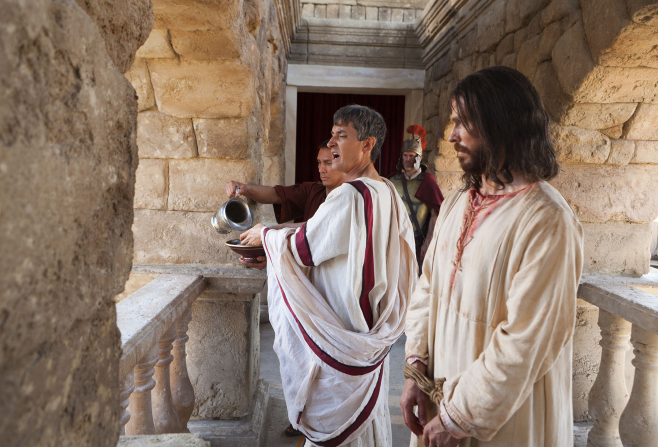
- John 19:15 says, "But they cried out, Away with him, away with him, crucify him. Pilate saith unto them, Shall I crucify your King? The chief priests answered, We have no king but Cæsar." The people clearly chose a different master than the true King. What do we choose to worship instead of God?
Jesus Before Herod Antipas, Luke 23:6-12
- Only Luke tells us of how Pilate sent Jesus to Herod Antipas. This Herod was the same who killed John the Baptist. He was the son of the Herod of Christ's infancy, who ordered the death of the innocent in Bethlehem. It says he was happy to see Jesus because he had wanted to see him perform a sign. It seems that his ruler was bored and wanted someone to do a magic trick for him on command. Christ is silent before him, and it isn't long before Herod turns to cruelty.
- Elder Robert D. Hales points out, “When we respond to our accusers as the Savior did, we not only become more Christlike, we invite others to feel His love and follow Him as well. To respond in a Christlike way cannot be scripted or based on a formula. The Savior responded differently in every situation. When He was confronted by wicked King Herod, He remained silent. When He stood before Pilate, He bore a simple and powerful testimony of His divinity and purpose. Facing the moneychangers who were defiling the temple, He exercised His divine responsibility to preserve and protect that which was sacred. Lifted up upon a cross, He uttered the incomparable Christian response: ‘Father, forgive them; for they know not what they do’ (Luke 23:34). Some people mistakenly think responses such as silence, meekness, forgiveness, and bearing humble testimony are passive or weak. But to ‘love [our] enemies, bless them that curse [us], do good to them that hate [us], and pray for them which despitefully use [us], and persecute [us]’ (Matthew 5:44) takes faith, strength, and, most of all, Christian courage”
The Death of Judas Iscariot Matthew 27:3-9
- Judas, seeing that Christ was condemned, tries to take it back. He goes to the chief priests and elders trying to return the money and saying he has betrayed innocent blood. This passage is so tragic. It almost seems that the outcome of his betrayal was not what he expected. Was he naive to the intentions of the chief priests? Had he, as some have suggested, expected Jesus to show forth His power when they came to arrest Him? Had he hoped to overthrow Rome through forcing a confrontation? Did He think that there was no way they could actually take the powerful Jesus so it didn't matter if he betrayed Him?
- The chief priests, showing once again their hypocrisy, won't put the money in the temple treasury since it is blood money. They will condemn an innocent man to death, so their scruples about the use of the money has nothing to do with righteousness, just the appearance of it. Whited sepulchers, indeed. They are straining the gnats out of their drink but swallowing camels.
- Judas throws down the money and goes to hang himself. They take the money and buy a field to bury foreigners. The field is called the Field of Blood "unto this day." Judas hangs himself. In Acts 1:18-19, the story is told a bit differently, in that Judas buys the field and kills himself in it through being disemboweled. The JST reconciles the two stories a bit by having Matthew 27:5 read, "and went, and hanged himself on a tree. And straightway he fell down, and his bowels gushed out, and he died."
The women at the cross, Luke 23:28-31
- On the way to the cross, Christ speaks to women who follow Him and lament for Him. He says they should not weep for him but for themselves because of the desolation that will come. Then He says, "For if they do these things in a green tree, what shall be done in the dry?" The JST clarifies, "This he spake, signifying the scattering of Israel, and the desolation of the heathen, or in other words, the Gentiles." The student manual explains this reference, "The “green tree” described in Luke 23:31 represents the time of Jesus Christ’s mortal ministry. The Savior’s statement implied that if the oppressors of the Jewish people could carry out such evil acts (see Luke 23:28–30) at a time when Jesus was among them, they would do much worse things to the Jewish people after He was gone—a time represented by the “dry tree.”
Christ is Mocked and Crucified Matthew 27:27-44, Mark 15:16-32, Luke 23:26-43, John 19:2-3, 17-27
- Mark tells us an entire band of soldiers came together for the mock coronation of Christ. Wayment says "the entire garrison would consist of two to six hundred soldiers"
- The soldiers put a crown on his head, put a robe on him, and divide his clothes. This is a mock coronation. Lynn Wilson says, "The seamless woven tunic or garment denotes its expensive nature. It was probably a gift from one of the wealthy women who “ministered unto him of their substance” (Luke 8:2). Some have argued that Jesus’ tunic was similar to the sacred garments worn by the Aaronic temple priests. Moses instructed, “Weave the tunic of fine linen” (Exodus 28:39)."
- The anchoring post would have already been in place, but the crossbeam needed to be carried to the site. Only John has Christ carry it alone. Lynn Wilson says of Simon, " The victim usually carried the cross for his crucifixion through the city streets to the place of crucifixion. Yet, after Jesus’ overwhelming night in Gethsemane, the scourging and mocking, Jesus was too weak to carry His own crossbeam. The Synoptic Gospels each record that a man from Northern Africa had just arrived in Jerusalem, and as an obvious foreigner, the Romans compelled him as a slave to carry the cross. It appears that this Simon became a Christian, or at least his family did, because Mark adds, “the father of Alexander and Rufus.” As the author knew and included their names, we assume that he had enough contact after this experience to learn his name, and that his children’s names would mean something to other Christians in Mark’s audience."
- The chief priests, scribes and elders were at the cross mocking him and saying that he saved others but can't save himself. They wouldn't allow themselves to go into a court of Gentiles so they can stay ritually pure for the Passover (John 18:28-29), but they have no scruples about showing cruelty and exulting over the suffering Jesus. I will never understand how men can be so cruel.
- Matthew and Luke say that both bandits crucified with him also mocked him, but Luke clarifies that one bandit rebuked the other and asked Christ to remember him. One of the few statements on the cross was to this man, saying, "To day thou shalt be with me in paradise."
- Those passing by mocked Him as well. In Mark, they say, "Ah, thou that destroyest the temple, and buildest it in three days, Save thyself, and come down from the cross." This tells me that this particular saying, about the destruction of the temple of Herod and the temple of his body, was one that was spread far and wide and found ludicrous. It also echoed the temptations of Satan at the beginning of Christ's ministry. Howard W. Hunter explains, "“There is, of course, running through all of these temptations, Satan’s insidious suggestion that Jesus was not the Son of God, the doubt implied in the tempter’s repeated use of the word if. ‘If thou be the Son of God, command that these stones be made bread.’ (Matt. 4:3.) ‘If thou be the Son of God, cast thyself down.’ (Matt. 4:6.) These, of course, were foreshadows of that final, desperate temptation which would come three years later: ‘If thou be the Son of God, come down from the cross.’ (Matt. 27:40.) But Jesus patiently withstood that ploy also, knowing in due time every knee would bow and every tongue confess. It was not necessary then, or ever, for Jesus to satisfy the curiosity of men, least of all unholy men."
The Death of Jesus, Matthew 27:45-56, Mark 15:33-41, Luke 23:44-49, John 19:28-37
- The gospels combined record seven statements of Christ on the cross. They are:
1. Luke 23:34 “Forgive them for they know not what they do. (JST meaning the soldiers who crucified him.)”
2. Luke 23:43 “Today thou shalt be with me in paradise”
3. John 19:26–7 “Woman behold thy son! . . . Behold thy mother!”
4. Matthew 27:46 & Mark 15:34 “Eli, Eli, lama sabachthani? (My God, my God, why hast thou forsaken me?)”
5. John 19:28 “I thirst.”
6. John 19:30 “It is finished.” (JST Matthew 27:50; “Father it is finished, thy will is done.”)
7. Luke 23:46 “Father, into thy hands I commend my spirit” (see Lynn Wilson)
- This article does a good job discussing all of the statements. My favorite of the seven sayings is the one where Christ asks John to care for His mother. In his moment of agony, He cared about His mother's needs.
- Elder Jeffrey R. Holland discusses Christ's lament about being forsaken from God in this beautiful talk, a portion of which is in the video below.
- In another talk, Elder Holland discusses what this moment must have been like for the Father: “I am a father, inadequate to be sure, but I cannot comprehend the burden it must have been for God in His heaven to witness the deep suffering and Crucifixion of His Beloved Son in such a manner. His every impulse and instinct must have been to stop it, to send angels to intervene—but He did not intervene. He endured what He saw because it was the only way that a saving, vicarious payment could be made for the sins of all His other children from Adam and Eve to the end of the world. I am eternally grateful for a perfect Father and His perfect Son, neither of whom shrank from the bitter cup nor forsook the rest of us who are imperfect, who fall short and stumble, who too often miss the mark”
- Though most crucifixion victims had already been scourged, it often took several days for a victim to die a slow agonizing death. Christ was on the cross for about 3 hours. Mark says it was the third hour, or about 9 a.m. when they put him on the cross and about noon when he died. Pilate was surprised he was already dead at that time (Mark 16:44).
- At the death of Christ, the world went dark for three hours and the earth shook. All four accounts note that at the death of Christ, the veil of the temple was torn asunder. This event must have been shocking. The veil separated the Holy Place from the Holy of Holies. It was only crossed one day in a year, on the Day of Atonement, when the priest reverently approached the mercy seat. With Christ's death, He opened the way to the presence of God for himself and for all of us.
- Luke 23:48 also says, "And all the people that came together to that sight, beholding the things which were done, smote their breasts, and returned." But it was too late.
- In Luke, Christ's death caused the Roman centurion to say, "Certainly this was a righteous man," while Mark says that the centurion testified, "Truly this man was the Son of God."
- John makes it clear that none of Christ's bones were broken, which fulfilled prophecy and also typified the sacrificial lamb. Lynn Wilson points out seven ways that Christ typified sacrificial lambs:
1. The lamb must be the firstborn (Exodus 13:2,12; D&C 93:21).
2. The lamb must be a male (Exodus 12:5; Matthew 1:21).
3. The lamb must be without blemish (Exodus 12:5; Hebrews 7:26–27; 1 Peter 2:22; Malachi 1:7–14; 3 Nephi 12:48).
4. No bones of the lamb were to be broken (Psalm 34:20; Exodus 12:46; John 19:36).
5. The lamb was to be killed from noon to three (John 19:14).
6. The lamb was to be eaten near the spot of the sacrifice with no flesh carried far away (Exodus 12:8, 46; John 19:41).
7. Nothing of it shall remain until the morning (Exodus 12:10).
The Burial of Christ, Matthew 27:57-66, Mark 15:42-47, Luke 23:50-57, John 19:38-42
- Joseph and Nicodemous, in haste, bravely asked for the body.
- The student manual says "Joseph of Arimathea was a wealthy member of the Sanhedrin, the Jewish governing council (see Matthew 27:57; Mark 15:43). He was a disciple of Jesus Christ, “but secretly for fear of the Jews” (John 19:38). After the Crucifixion, Joseph put his position at risk as he “went in boldly unto Pilate” (Mark 15:43) and obtained permission to bury the Savior’s body prior to the Sabbath. Joseph used his own tomb for the burial of Jesus (see Matthew 27:60). Nicodemus, another member of the Sanhedrin, brought a costly “mixture of myrrh and aloes, about an hundred pound weight” (John 19:39) to anoint the body. Together, Joseph and Nicodemus fulfilled the Old Testament prophecy that the Savior would be “with the rich in his death” (Isaiah 53:9). The amount of myrrh and aloes purchased by Nicodemus was similar to that used in royal burials, indicating that the Savior’s followers acknowledged His status as a king (see 2 Chronicles 16:14)."
- The women stayed to watch and see it through. It seems that like so many other times in history, women are powerless to stop the wickedness of men. While many of his disciples scattered (and may have not been allowed at the cross), at least the women, including his mother, watched and were with him all the way. Perhaps this is one reason why it was to a woman that Christ first appeared.
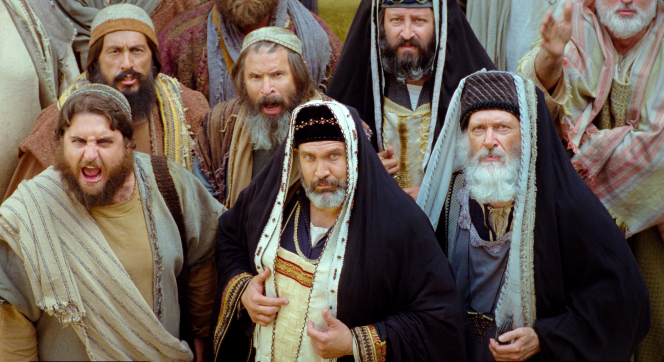
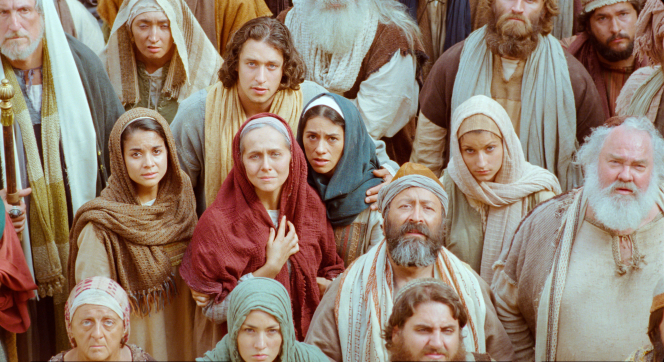
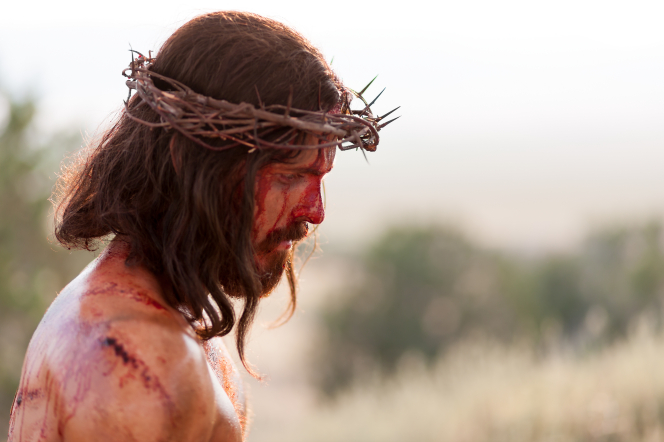
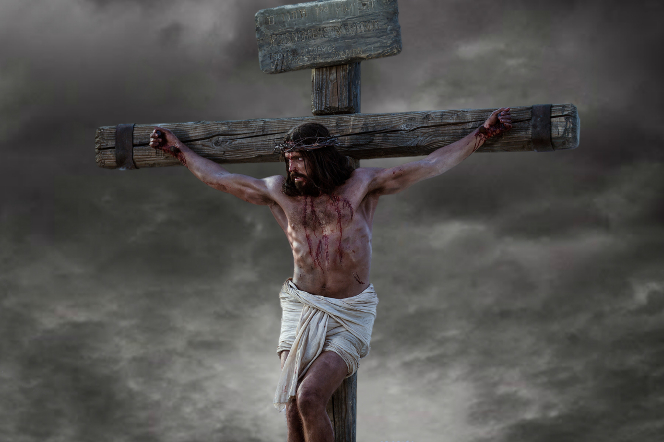
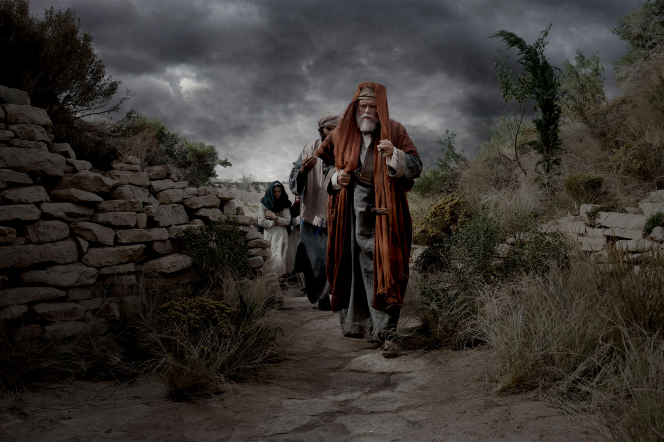
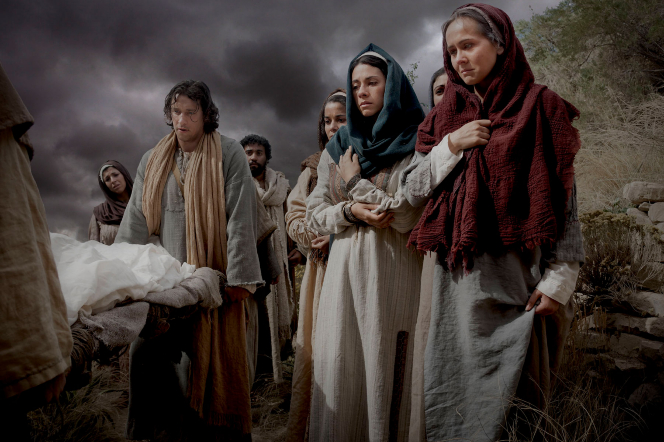
Comments